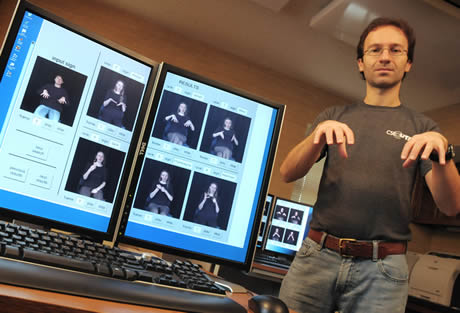634 Nedderman Hall
Box 19019
416 Yates Street
Arlington, TX 76019-0019
Computer Engineering Doctoral Degree Program

Objective and Description
The purpose of the graduate program in Computer Science and Engineering is to facilitate the student's continued professional and scholarly development. The Doctor of Philosophy (Ph.D.) program is designed to prepare the student to conduct research and development in an area of concentration.
Degree Overview
The purpose of the graduate program in Computer Science and Engineering is to facilitate the student's continued professional and scholarly development. The Doctor of Philosophy (Ph.D.) program is designed to prepare the student to conduct research and development in an area of concentration.
About the Program
A doctorate in computer engineering builds on prior knowledge, education, and experience in the field. The degree typically takes 4-5 years to complete and involves independent study and research in a focused area of interest. Doctoral programs include coursework and research that culminate in a final dissertation.
Students may apply for the Ph.D. program after completing an M.S. degree in computer engineering or computer science, or proceed directly to the Ph.D. program after completing their B.S. degree in computer engineering or computer science. Students without an M.S. will typically spend an extra year learning basic research skills prior to beginning work on their dissertation.
Candidate selection for the doctoral program is a very a competitive process, considering GPA, performance in computer-related classes, TOEFL or IELTS (for non-English speaking candidates), GRE and reputation of the university where you did your undergraduate and graduate studies. Relevant recent work experience is considered in cases where educational credentials are dated or not in the computer engineering area.
Degree Options
Ph.D. candidates select one of the following graduate tracks provided by the Computer Science and Engineering Department and complete five milestones to achieve their doctorate in Computer Engineering:- Computer Architecture and Systems
- Embedded Systems
Five Ph.D. milestones:
After selecting one of the major tracks above, a Ph.D. candidate must complete the following five milestones:
| Milestone | Description |
|---|---|
| Form Committee | At least 4 members (supervisor plus three committee members). One member may be external. External member must have a doctoral degree and be approved by the department's Graduate Senate Committee. |
| Diagnostics Evaluation |
Complete required coursework:
- B.S. to Ph.D.: 30 hours - M.S. to Ph.D.: 18 hours All students must complete required core classes plus classes in their selected major |
| Comprehensive Exam | A written and an oral examination that evaluates the basic research foundation of the candidate prior to the proposal and dissertation phases. |
| Comprehensive Exam | Propose dissertation topic. Requires full approval of the committee members |
| Defense | Final defense and granting Ph.D. |
All Ph.D. students’ progress toward the milestones are reviewed and monitored by a committee consisting of at least 4 members (supervisor plus three committee members.)
Admission & Degree Requirements Inquire Now Computer Science and Engineering Department
Requirements for Licensure or Certification
All discipline specific programs in the College of Engineering meet educational requirements for professional licensure or certification in all U.S. states, territories, and the District of Columbia.